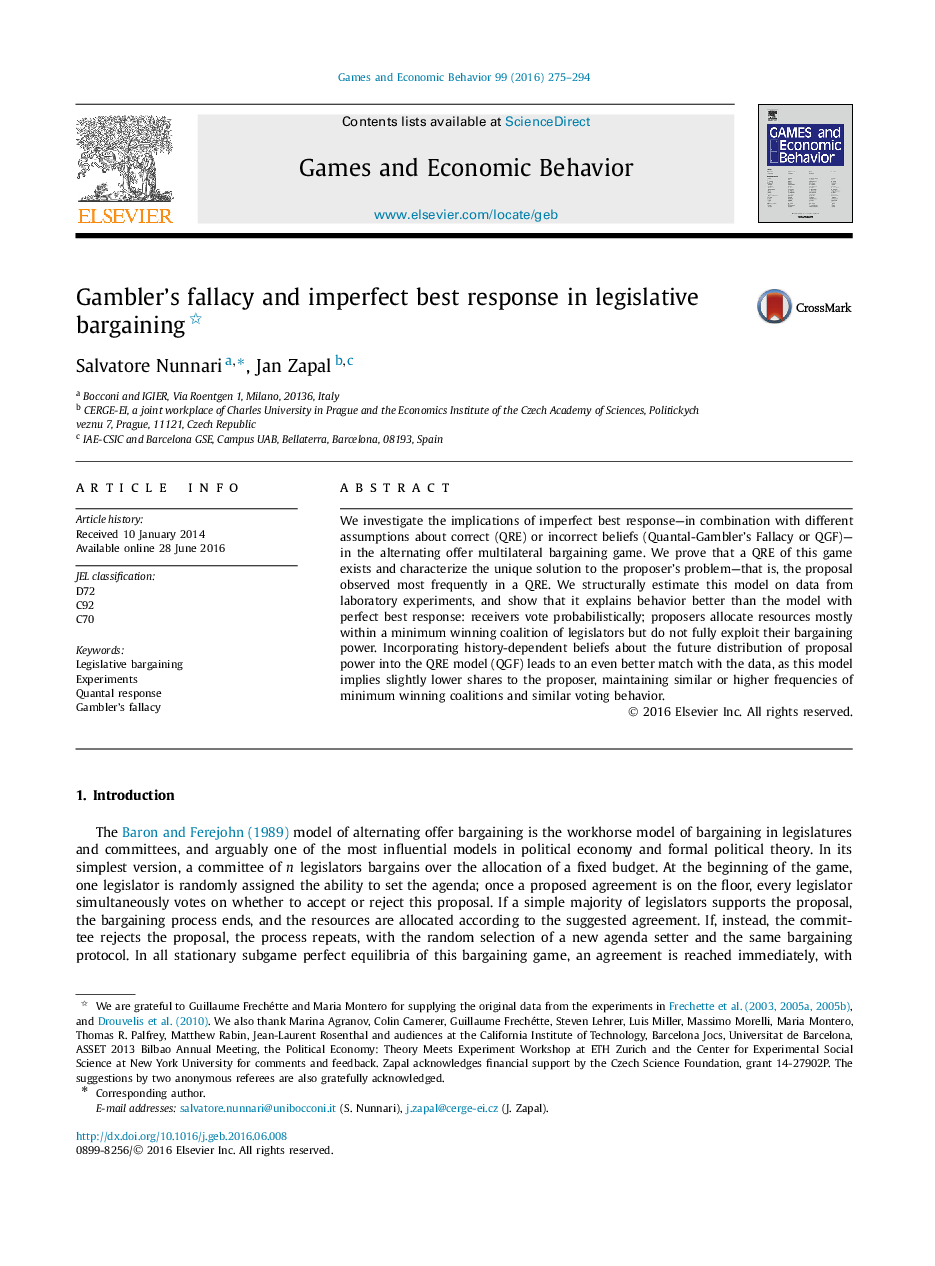| Article ID | Journal | Published Year | Pages | File Type |
|---|---|---|---|---|
| 5071518 | Games and Economic Behavior | 2016 | 20 Pages |
Abstract
We investigate the implications of imperfect best response-in combination with different assumptions about correct (QRE) or incorrect beliefs (Quantal-Gambler's Fallacy or QGF)-in the alternating offer multilateral bargaining game. We prove that a QRE of this game exists and characterize the unique solution to the proposer's problem-that is, the proposal observed most frequently in a QRE. We structurally estimate this model on data from laboratory experiments, and show that it explains behavior better than the model with perfect best response: receivers vote probabilistically; proposers allocate resources mostly within a minimum winning coalition of legislators but do not fully exploit their bargaining power. Incorporating history-dependent beliefs about the future distribution of proposal power into the QRE model (QGF) leads to an even better match with the data, as this model implies slightly lower shares to the proposer, maintaining similar or higher frequencies of minimum winning coalitions and similar voting behavior.
Related Topics
Social Sciences and Humanities
Economics, Econometrics and Finance
Economics and Econometrics
Authors
Salvatore Nunnari, Jan Zapal,
